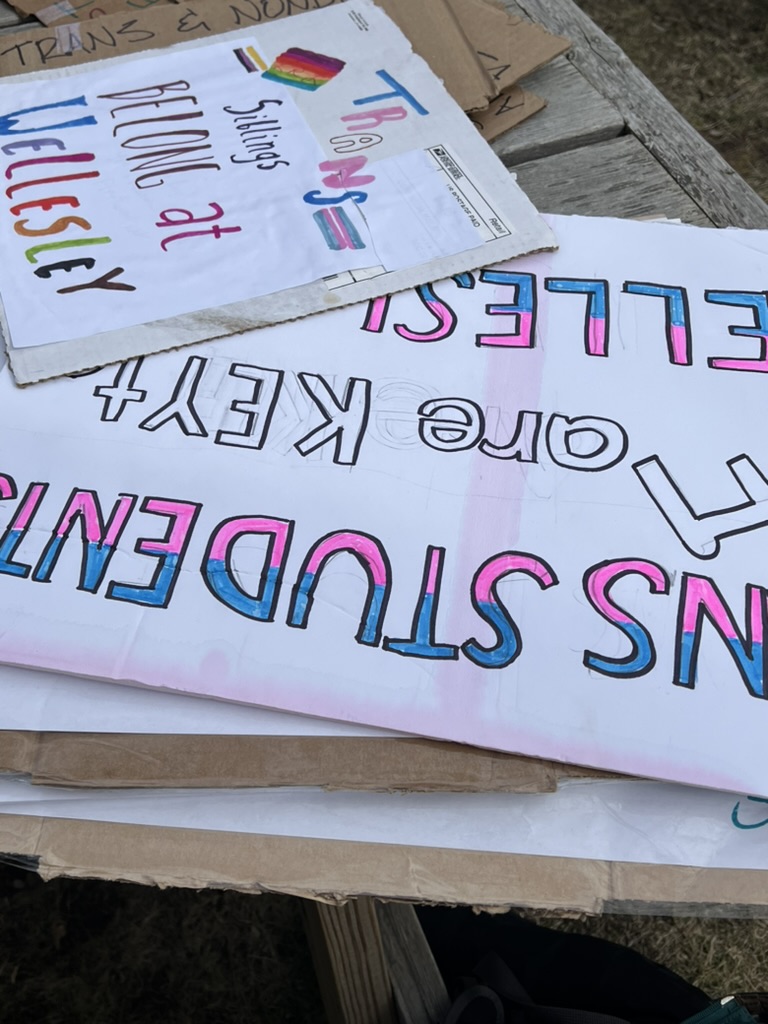Wellesley queer and transgender students are concerned about Trump’s sweeping executive orders that directly targets the LGBTQIA+ population.
President Trump has signed more than 45 executive orders since his inauguration on Jan. 20, moving quickly to fulfill his campaign promise to roll back protections for trangender and binary people.
The White House issued orders that included restricting federal support for gender transition care for people under 19, barring trans people from serving in the military, and mandating the recognition of two biological sexes instead of gender identity. Trump is also expected to sign an executive order on Wednesday, Feb. 5, to ban transgender women and girls from participating in female sports events.
Executive orders are not final, as federal judges can temporarily block orders, pending further review.
Many gender-fluid and trans students at Wellesley are concerned over these executive orders.
“It is completely not based in any sort of real science because we understand even sex to be on a continuum because of the existence of intersex people,” said Lucia Urreta ’26, president of Siblings, a club designed to provide a safe space for trans and non-binary members of the Wellesley community.
While the situation may seem dire and “emotionally draining,” Urreta emphasizes how the simple act of existing can serve as an act of resistance.
“The continued existence of Siblings is our way to fight back against that erasure. Even on our campus, acknowledging that this isn’t just a women’s campus — it’s a way to fight back,” Urreta said.
Urreta is referencing the administration’s trans-exclusionary language in its gender policy.
Wellesley states that the College “will use language reflective of its identity as a women’s college, i.e., female pronouns and other gendered language, in all institutional communications.”
The mental toll that LGBTQIA+ individuals may be feeling during these trying times has not gone unnoticed by Dr. Todd Nordgren, the Director of LGBTQ+ programs and services at Wellesley.
“One of the difficulties with the executive order is that it doesn’t give a lot of clear guidance around policy, and so the effects are a little uncertain right now,” Nordgren said.
The LGBTQ+ office provides programs and events to foster queer community, which includes providing support and resources directly for students, as well as advocacy on behalf of queer and trans students on campus.
However, for non-binary and trans students, accessing government buildings and renewing passports are an immediate concern that the ban could affect. Nordgren stated that the LGBTQ+ office is focused on navigating these “somewhat more clear” issues related to federal identification.
“[Students’ mental health], is where I’m spending my time and energy immediately. We know here in our community, that’s not how we think about people,” said Nordgren.
Students can find resources through the resource guide on Wellesley’s LGBTQ+ website. The guide includes resources with other ways to get support for documentation, healthcare and other types of care students might need. The resource guide also includes information for a range of intersecting identities, with regional organizations that are focused on specific racial or ethnic groups. Additionally, LGBTQ+ services will be hosting its annual Trans Week of Visibility at the end of March. Although LGBTQ+ services have hosted this event in the past, Nordgren noted that it feels more important now than ever. Nordgren emphasized that they want students to know that they can always make an appointment with them to have conversations or to be connected to important resources.
Urreta ‘26 believes that Trump’s executive orders are “all about making sure that we [the LGBTQIA+ community] lose connection with each other.”
Other student organizations, such as Order of STEM (Science, Technology, Engineering and Mathematics) (for all students who are out in STEM), BlackOut (for Black LGBTQIA+ students, or students in the African diaspora), Familia (for Latinx, queer trans students, TeaTalks (for any Asian student who’s queer or trans) and QTSAC (for trans South Asian students), are additional spaces where queer students can find solidarity amidst Trump’s executive order.
Contact the editors responsible for this story: Jessica Chen, Ruby Barenberg, Galeta Sandercock, Sazma Sarwar, and Valida Pau




